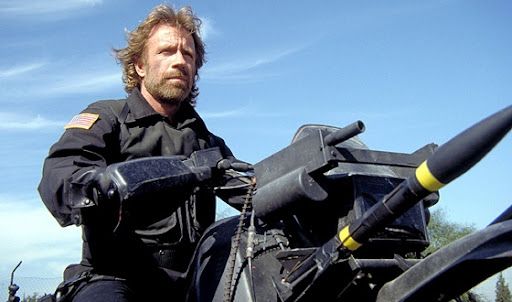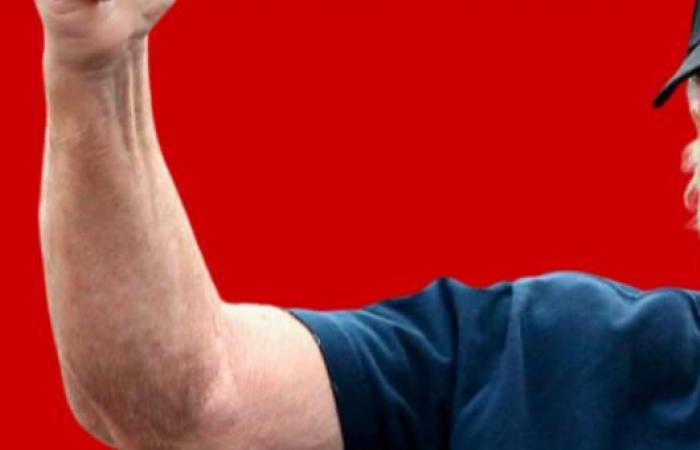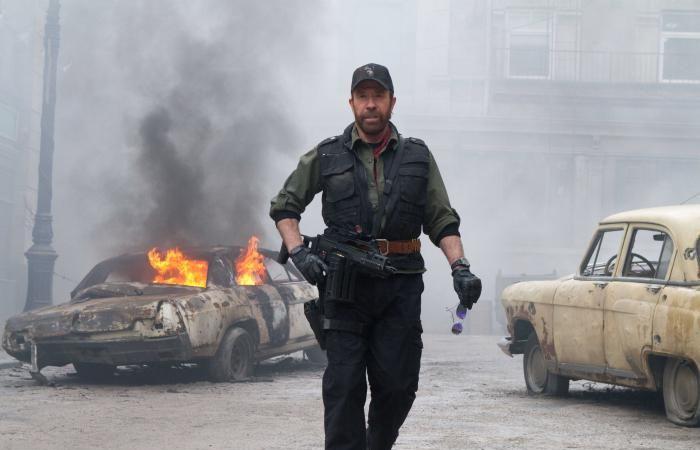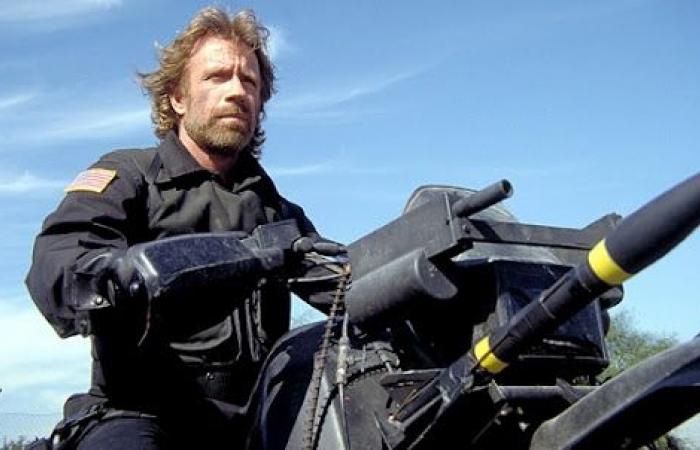Now 84 years old, Chuck Norris is still a cult actor for an entire generation. What we know less is that the actor was also a star, despite himself, in the USSR. We explain to you:
Chuck Norris: an impressive career
The air of nothing, Chuck Norris has a rather busy career. Obviously famous for his role as Walker in the hit series Walker Texas Rangerhe also had a career on the big screen, from the beginning of the 1970s. One of his most famous roles is obviously his confrontation with Bruce Lee In Dragon’s Fury in 1972. He also had a small role in Operation Dragon in 1973. The 1980s were marked by more or less cult action B series like the saga Missing, Horror in the city or even the Delta Force. His appearance in Expendables II in 2012 also made noise.
But what is less known about Chuck Norris is that he worked extensively with Cannon Group. A studio that had fun deriving big hits into cheap versions. His filmography quickly overflowed with imitations of cult films like Missing in Actiona sort of parody of Rambo or Invasion USA who resumed Red Dawn. Chuck Norris became a pillar of the Cannon Group, this now defunct company. Cannon Group had a reputation as a questionable independent film studiowho gained notoriety in the 1980s thanks to his eclectic films, ranging from the surprising Runaway Train au kitsch He-Manmade solely to sell figurines.
Chuck Norris was a star in the USSR
Despite the openly anti-communist and illegal nature of his films, bootleg copies of Chuck Norris films were circulating in Eastern Europesecretly feeding illicit movie clubs and martial arts dojos. Aside from his breakthrough in Hong Kong action films, where he played the final boss in Bruce Lee’s 1972 film, Dragon’s Furyhe had no major films under his belt in 1985. The whole idea of glorify combat sports was banned in the USSR, and the existence of black markets revealed the inability of the state to meet the needs or desires of its citizens. Through the bureaucratic twists and turns of the Soviet Union, any foreign pastimes or cultural institutions were viewed with extreme paranoia. The USSR went so far as to boycott the 1924 Olympic Gamesconsidered too capitalist, and did not participate until the early 1950s. Consequently, all martial arts were banned except for an internally invented Russian style called sambo.

Eventually, communism disappeared. In its place, Western celebrities were warmly welcomed into previously hostile territories, with enthusiastic fans seeking to meet their heroes. During a visit in the post-Soviet years, the star of Delta Force had to be protected by bodyguards against crowds of admirers trying to shake his hand. For the first time in his life, he admitted to being afraid of physical harm, as he recounted during an appearance on Late Night with Conan O’Brien in the mid-1990s.
People in countries behind the Iron Curtain identified with the American hero and gathered in underground theaters to see his low-budget films. The director of Chuck Norris vs. CommunismIlinca Calugareanu, recalled with emotion that:
These films gave people hope. When you see Chuck Norris fearlessly challenge authority, it makes you want to do the same.
Considered a mere curiosity in the West, with Norris specializing in mullet-wearing heroes defeating cartoonish villains, his reputation stood out radically in countries deprived of freedom of expression or protest.








